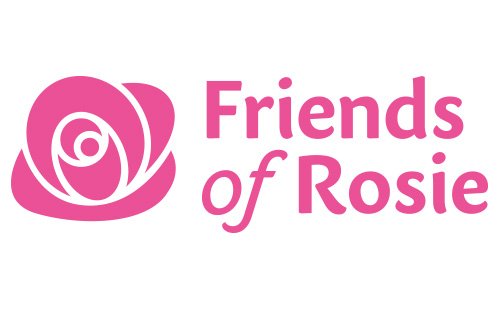Friends of Rosie have partnered with Neuroblastoma UK to fund new research to improve treatment for children with advanced neuroblastoma.
Neuroblastoma is a rare type of childhood cancer. Around 100 children are diagnosed with neuroblastoma every year in the UK. Children with aggressive high-risk neuroblastoma are treated with incredibly intensive drugs and invasive procedures that can leave them with lifelong disabilities. And because they have an increased risk of relapse, the long term outcome of these children desperately needs to be improved.
Professor Louis Chesler will receive a research grant of £469,093, which includes a donation of £15,000 from Friends of Rosie. The grant will enable the research team to progress their research and develop safer, non-invasive and more effective treatment for children with the disease.
Professor Chesler’s research aims to develop blood-based biomarker tests for children with high-risk neuroblastoma, to help guide and monitor treatment.
Lisa Larkin, Founder and Trustee of Friends of Rosie (and Rosie’s mum) said, “For Friends of Rosie this particular research has extra resonance as Rosie, our charity’s namesake and my daughter, had neuroblastoma. I remember so clearly being given the diagnosis and prognosis that she would die in the same sentence. There seemed to be a lack of priority for childhood cancer research and treatment. That’s why we started Friends of Rosie – to pump prime vital new research to help children like Rosie. 30 years later we are delighted to collaborate with Neuroblastoma UK in this most exciting new project.”
About the research
Professor Louis Chesler, Professor of Paediatric Cancer Biology at The Institute of Cancer Research said, “To treat a child with neuroblastoma more effectively, we first need to understand how aggressive their cancer is or whether they are at greater risk of relapse. Currently the only way we can get detailed information about their tumour is from tissue biopsies, which are invasive and potentially dangerous. We do this in order to analyse tissue samples for molecular changes or ‘biomarkers’. These biomarkers help us to diagnose the cancer and guide a child’s treatment.
“The medical technology now exists to detect multiple biomarkers in blood quickly and accurately, which could spare children from having to undergo painful tissue biopsies. But as yet, none of our standard clinical trials implement any blood-based testing, or molecularly guided drugs. This is a critical failure in modern clinical trial design that we wish to eliminate through our proposed work.
“Before we can bring these blood-based tests to trial, we need to formally evaluate the technology to determine its power and accuracy. We also need to cross-compare the various test types against each other to understand what they can and cannot measure. The research grant from Neuroblastoma UK and Friends of Rosie will enable our team to investigate blood samples and data from different biopsy techniques across three international research centres. Once we’ve completed our evaluation, we can then propose a less invasive method of diagnostic testing for children with this aggressive cancer.
“Thanks to donations from members of the public, we are able to continue our research work to move potential less invasive treatments from bench to bedside, a vital step in finding a cure for this rare childhood cancer.”




